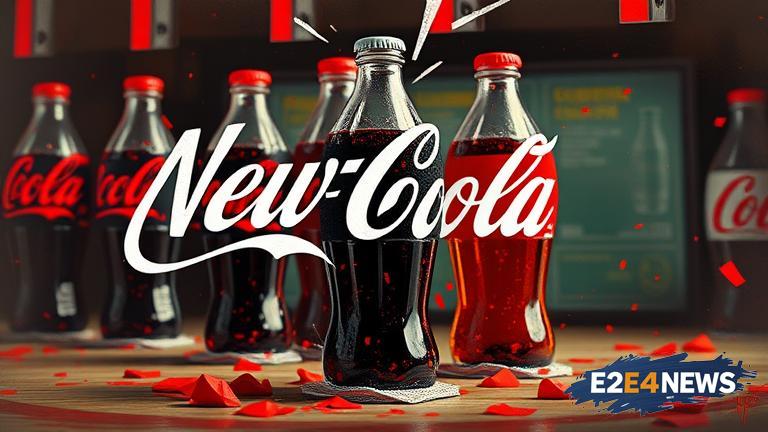The introduction of New Coke in 1985 was a highly publicized event, with the company spending millions of dollars on advertising and marketing campaigns to promote the new formula. However, the response from consumers was overwhelmingly negative, with many feeling that the new taste was too sweet and lacked the richness of the original. The backlash was swift and severe, with protests and boycotts erupting across the United States. Despite the company’s efforts to convince consumers that New Coke was an improvement, the public remained skeptical and loyal to the original formula. As the controversy surrounding New Coke continued to grow, the company’s sales began to decline, and it became clear that the new formula was not going to be a success. In response to the mounting pressure, Coca-Cola announced that it would be reintroducing the original formula, rebranded as Coca-Cola Classic, just a few months after the introduction of New Coke. The move was seen as a major victory for consumers, who had made their voices heard and forced the company to reverse its decision. The New Coke debacle served as a cautionary tale for companies looking to make significant changes to their products, highlighting the importance of listening to consumer feedback and being mindful of brand loyalty. In the years since, the story of New Coke has become a legendary example of a marketing failure, with many business schools and marketing professionals studying the case as a way to learn from the company’s mistakes. The introduction of New Coke also led to a renewed focus on consumer research and testing, with companies recognizing the importance of gathering feedback and data before making major changes to their products. Today, the story of New Coke is still widely referenced and studied, serving as a reminder of the power of consumer opinion and the importance of brand loyalty. The company’s decision to reintroduce the original formula also highlighted the value of nostalgia and tradition, with many consumers preferring the familiar taste of the original Coca-Cola. The New Coke controversy also sparked a wider debate about the role of marketing and advertising in shaping consumer preferences, with some arguing that the company’s efforts to promote the new formula were overly aggressive and misleading. Despite the controversy, Coca-Cola was able to recover from the debacle and continue to thrive as a company, with the introduction of New Coke ultimately serving as a minor blip in the company’s long history. The story of New Coke has also been the subject of numerous books, articles, and documentaries, cementing its place in the annals of marketing history. In conclusion, the introduction of New Coke was a major misstep for Coca-Cola, but it also served as a valuable learning experience for the company and a reminder of the importance of listening to consumer feedback.
